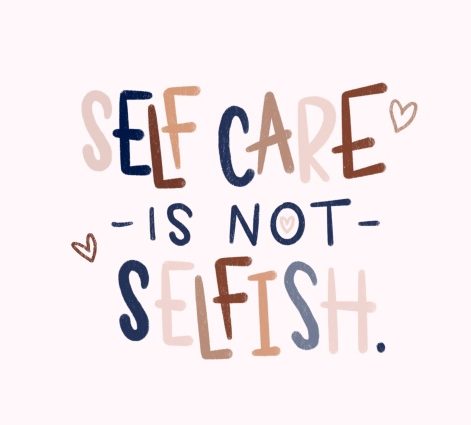Self-care helps to withstand the intense rhythm of life and remain a full member of society. It has nothing to do with selfishness, although many of us still confuse these concepts. Behavioral specialist Kristen Lee shares techniques and practices that are available to each of us.
“We live in an age of anxiety and burnout is the new normal. Is it any wonder that self-care seems to many to be just another bargaining chip in popular psychology? However, science has long proven its undeniable value, ”recalls behaviorist Kristen Lee.
The World Health Organization has declared a global mental health crisis and has defined burnout as an occupational risk and a common condition in the workplace. We have to push ourselves to the limit, and the pressure builds up causing exhaustion and anxiety. Respite, rest and free time seem like a luxury.
Kristen Lee is often faced with the fact that clients resist the offer to take care of themselves. The very thought of this seems to them selfish and hardly realizable. However, it is simply necessary to maintain mental health. Moreover, its forms can be very different:
- Cognitive restructuring or reframing. Calm the toxic inner critic and practice self-compassion.
- Lifestyle medicine. You need to eat right, sleep the right amount of hours, and exercise.
- Correct communication. This includes the time we spend with loved ones and the formation of a social support system.
- Quiet place. Everyone needs to be away from distractions, gadgets, and responsibilities at least once in a while.
- Rest and fun. We all need to find time to relax and take part in activities where we really enjoy the moment.
Alas, often we do not realize how negatively stress affects health, exactly until we get sick. Even if it seems to us that everything is relatively good, it is important to start taking care of ourselves in advance, without waiting for the appearance of «alarm bells». Kristen Lee gives three reasons why this should be a regular practice for everyone.
1. Small steps matter
We easily forget ourselves when we are busy. Or we give up if we have made a plan that is too big and complicated and cannot find the time and energy to implement it. However, everyone can implement simple actions into their daily routine to help themselves stay in line and avoid overload.
We can’t fool ourselves with promises to relax as soon as we cross off the next item from our to-do list, because during this time 10 new lines will appear there. The cumulative effect is important here: many small actions eventually result in a common result.
2. Self-care can take many forms.
There is and cannot be a one-size-fits-all formula, but it is generally about lifestyle medicine, creative pursuits, hobbies, time with loved ones, and positive self-talk—science has proven the enormous value of these activities in protecting and promoting mental health. . On your own or with the help of a therapist, coach, and loved ones, you can come up with a list of activities that you can do along with other daily activities.
3. It all starts with permission
A lot of people don’t like the idea of taking time for themselves. We are used to taking care of the rest, and changing the vector requires some effort. At such moments, our value system is especially pronounced: we take pride in caring for others, and it seems illogical for us to pay attention to ourselves.
It is important to give ourselves the green light and really realize that we are important and worth our own “investment”, and every day, then self-care will become more effective.
We know that prevention is cheaper than repair. Self-care is not selfishness, but a reasonable precaution. This is not only and not so much about “setting aside a day for yourself” and going for a pedicure. It’s about protecting our mental health and ensuring mental and emotional resilience. There are no universal solutions here, everyone has to find their own ways.
“Choose one activity this week that you think you might enjoy,” recommends Kristen Lee. — Add it to your to-do list and set a reminder on your phone. Watch what happens to your mood, energy level, appearance, concentration.
Develop a strategic care plan to protect and enhance your own well-being, and enlist the support to carry it out.
About the author: Kristen Lee is a behavioral scientist, clinician, and author of books on stress management.










